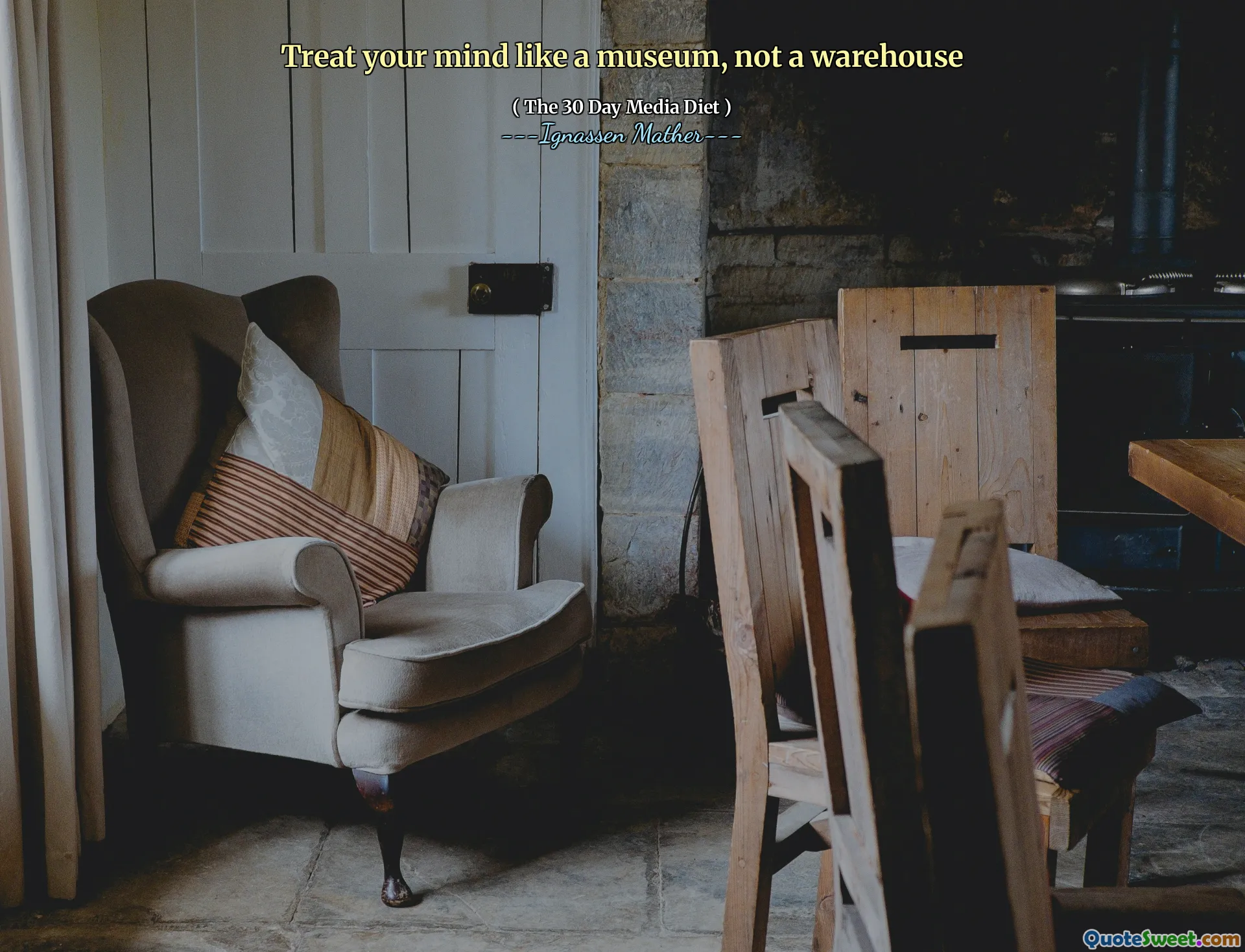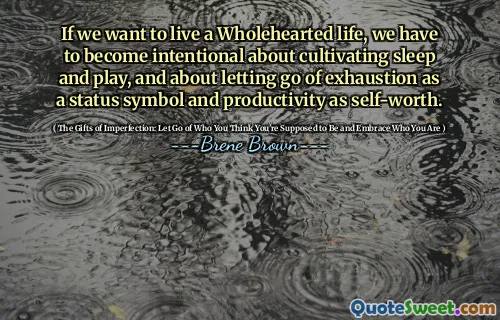
Treat your mind like a museum, not a warehouse
This evocative quote invites us to rethink how we approach the accumulation and organization of knowledge and experiences in our minds. A warehouse implies indiscriminate storage — items are packed densely and quickly, often without concern for order or beauty. In contrast, a museum is curated, selective, and thoughtful. Each artifact has significance and is presented in a way that encourages appreciation, reflection, and context.
When we treat our minds like warehouses, we tend to collect vast amounts of information passively, often becoming overwhelmed or distracted. This approach can lead to mental clutter, where useful knowledge is buried under trivial or forgotten details. We become like storage spaces filled to capacity, but not truly engaging with or making meaning from what we hold.
On the other hand, treating the mind like a museum emphasizes the importance of curation — choosing what we hold onto, what we focus on, and what we display for reflection. It encourages us to value quality over quantity and to foster a mindful organization of our memories, ideas, and learning. When thoughtfully arranged, the mind becomes a place where connections between concepts can be illuminated, creativity can flourish, and wisdom can emerge.
In today’s age of information overload, as also explored in "The 30 Day Media Diet," this perspective is especially important. We are bombarded with distractions and a relentless inflow of data, which can overload us cognitively and emotionally. By adopting a museum mindset, we create space for intentional engagement, critical thinking, and deeper understanding. Our mental environment becomes a sanctuary for purposeful reflection rather than a chaotic warehouse of information. This metaphor encourages mindful consumption and preservation of ideas that truly enrich our intellectual and emotional lives.




